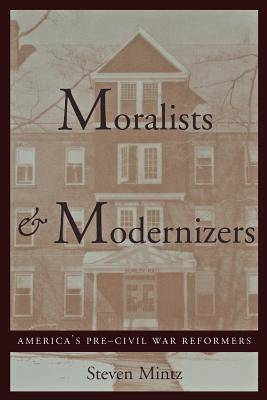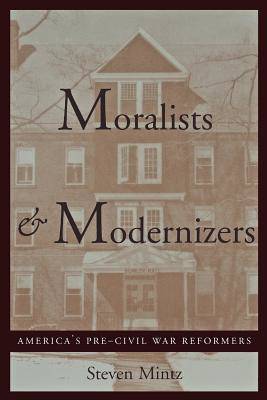
- Retrait gratuit dans votre magasin Club
- 7.000.000 titres dans notre catalogue
- Payer en toute sécurité
- Toujours un magasin près de chez vous
- Retrait gratuit dans votre magasin Club
- 7.000.0000 titres dans notre catalogue
- Payer en toute sécurité
- Toujours un magasin près de chez vous
Description
The decades before the Civil War saw the first secular efforts in history to remake society through reform. Reformers launched unprecedented campaigns reform criminals and prostitutes, to educate the deaf and the blind, guarantee women's rights, and abolish slavery. Our modern systems of free public schools, prisons, and hospitals for the mentally ill are all legacies of this era. Moralists and Modernizers tells the fascinating story of America's first age of reform--combining incisive portraits of leading reformers and movements with perceptive analysis of religion, politics, and society.
Arguing that the reform impulse grew out of the era's peculiar mix of fear and hope, Steven Mintz shows that reform arose not only from fears of social disorder, family fragmentation, and widening class divisions, but also from a millennialist sense of possibility rooted in new religious and philosophical ideas. He then examines three distinct responses to pre-Civil War America's pressing social problems. Moral reform sought to create a Christian moral order using moral suasion. Social reform combatted poverty, crime, and ignorance through new institutions offering non-authoritarian forms of social control. Radical reform sought to regenerate American society by eliminating fundamental sources of inequality such as slavery and racial and sexual discrimination. In an epilogue, Mintz fits antebellum reform into the larger context of America's liberal tradition.
Mintz concludes that America's pre-Civil War reformers were at once moral critics and cultural modernizers. As exponents of a distinctly modern set of values, reformers attacked outmoded customs, smoothed the transition from a preindustrial to an industrial order, and devised modern bureaucratic systems of criminal justice, public education, and social welfare. The first comprehensive account antebellum reform to appear in twenty years, Moralists and Modernizers is a rich and rewarding work of synthesis and interpretation which draws upon the most recent historical research.
"This book charts a middle ground between those who regard reform as a form of class-based social control and those who stress reformers' benevolent intentions. It emphasizes the duality of antebellum reform, which blended impulses toward social and moral uplift with impulses to impose new codes of personal conduct, shape character, and construct new institutions of social control."--from Moralists and Modernizers
Spécifications
Parties prenantes
- Auteur(s) :
- Editeur:
Contenu
- Nombre de pages :
- 208
- Langue:
- Anglais
- Collection :
Caractéristiques
- EAN:
- 9780801850813
- Date de parution :
- 01-08-95
- Format:
- Livre broché
- Format numérique:
- Trade paperback (VS)
- Dimensions :
- 153 mm x 229 mm
- Poids :
- 294 g

Les avis
Nous publions uniquement les avis qui respectent les conditions requises. Consultez nos conditions pour les avis.






